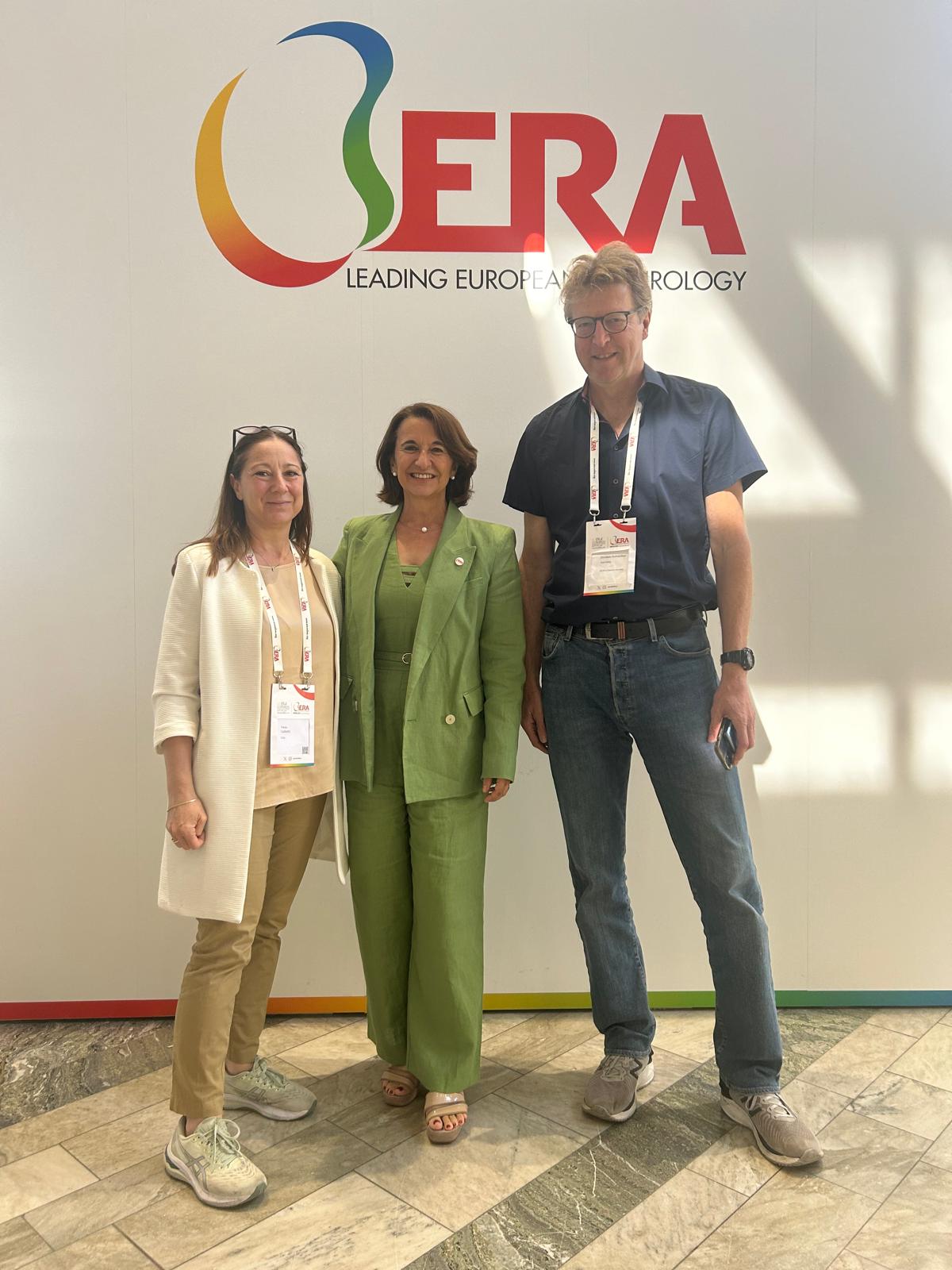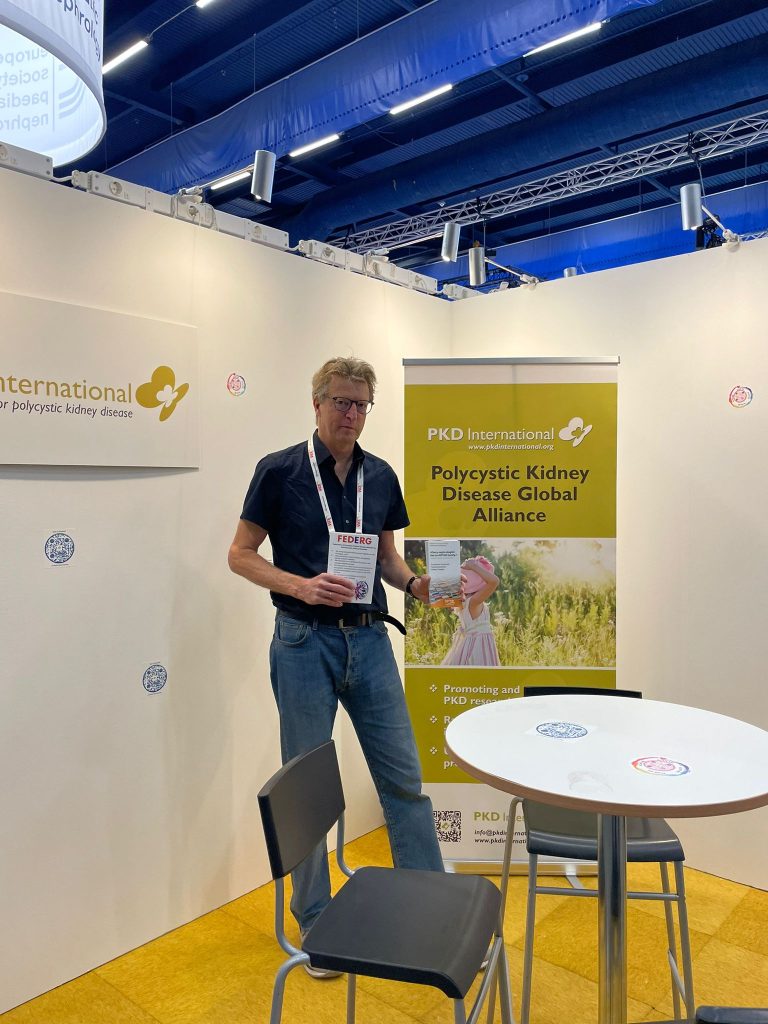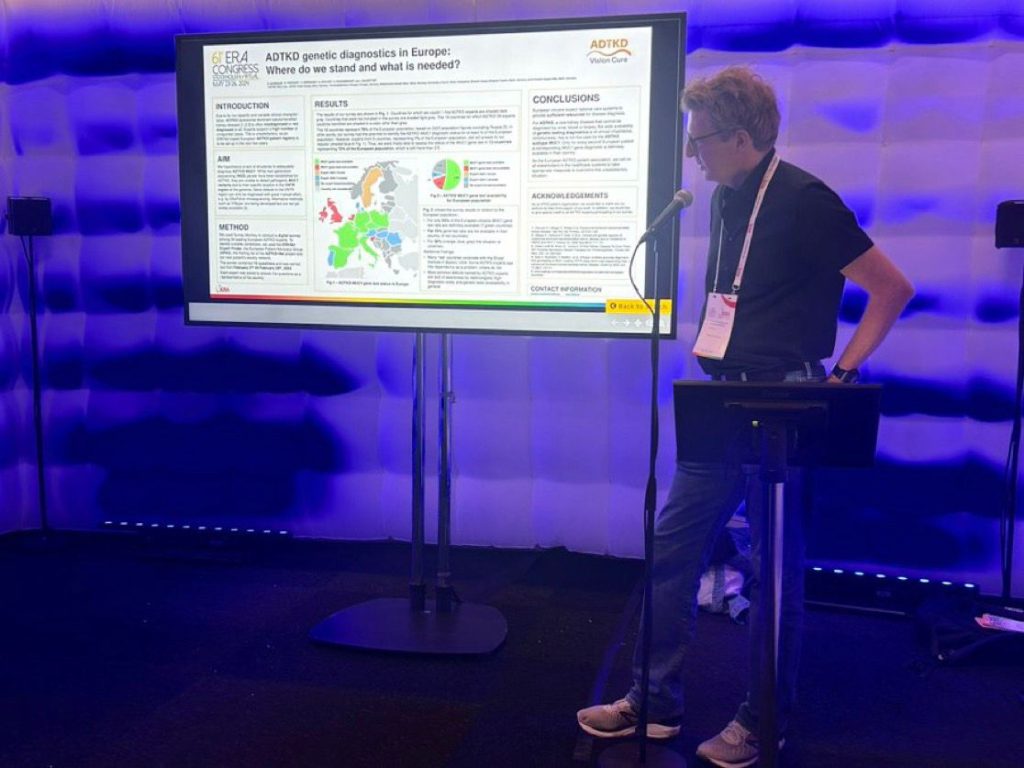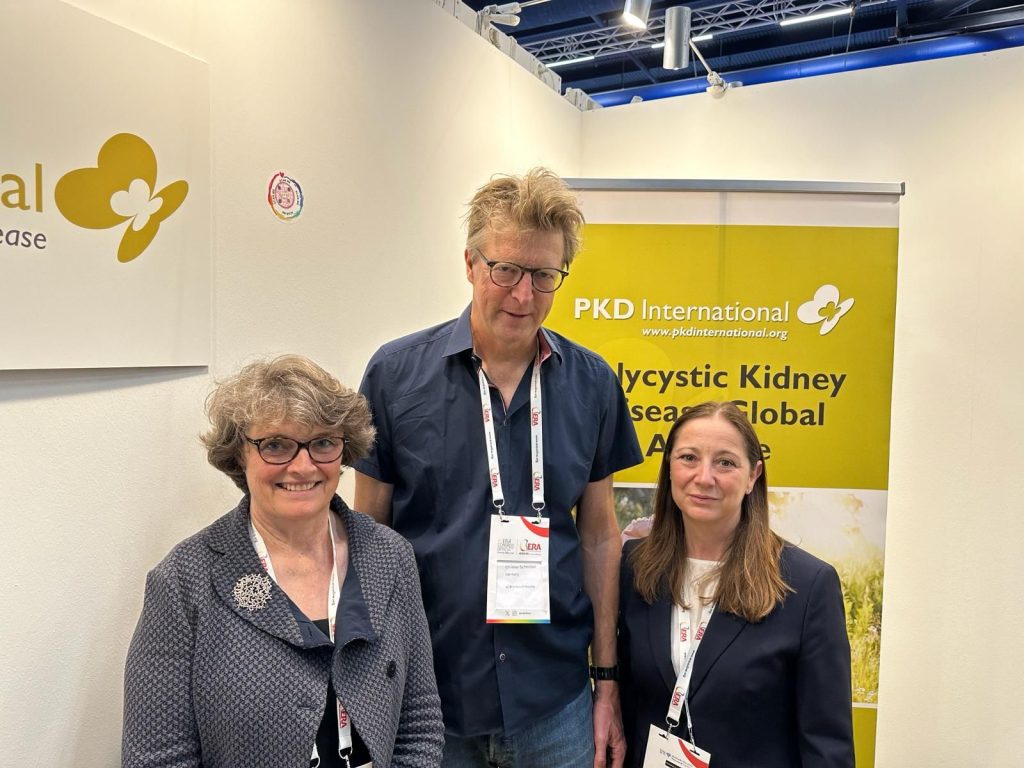Representation of FEDERG at the ERA Congress, Stockholm from May 23 to 26.

From May 23 to 27, the ERA European Renal Association Congress took place in Stockholm.
Representatives of patients and members of FEDERG were invited to have an active participation and present dissemination of the FEDERG in a booth with advertising articles.
Christian Scheidler from ADTKD, (Federg member) on behalf of FEDERG did dissemination work with a booth to make know our Federation of Groups of patients affected by a rare and genetic kidney disease. He was able to benefit from the many international contacts. The experience was extremely important that patient representatives join forces and speak with one voice at conferences such as ERA 2024. He also actively participated in a presentation entitled “ADTKD genetic diagnostics in Europe: where do we stand and what is needed?” was received with great interest. The key takeaway from our study is that genetic testing for the ADTKD-MUC1 subtype is only available for every 2nd European resident in their own country. The risk of undiagnosed ADTKD-MUC1 patients is therefore significantly higher compared to other rare kidney diseases.
Other FEDERG members were also present this is the case of Susie Gear from Alport representing Alport Uk. “Our session was called the ERAC symposium and was designed to debate the topic of Endpoints in Randomised Clinical Trials (RCTs). As the patient representative, I’d taken the time to understand other patient views and invited many patients to share their thoughts, stories and ideas with me in advance. So we were able to share a number of stories of rare kidney diseases and the challenge of endpoints and access/not access to drugs if the trials were not designed appropriately. The overall message we left them with was to involve patients in the design of clinical trials from the beginning to the end. And that some disease areas will have similar endpoints for trials. Some disease areas will necessarily have very specific and different endpoints in trials and it is important to understand the differences across the diseases. Heidi Zealey fed back to me a number of FEDERG stories/feedback, which I was able to quote in the session.”
FEDERG was present through Juan Carlos Julián (Board member) and Managing Director of ALCER (Spanish Kidney Patient’s Federation) at the workshop held by Novartis on mental health and rare kidney diseases, where he was able to highlight the anxiety of delay in the diagnosis and the need to generalize genetic testing rare kidney diseases, often of genetic origin. Jan van Cruchten from our federated entity NVN and the president of the EKPF (Daniel Gallego), both patients with rare glomerular diseases, also participated. At the ERA Congress the EKPF presented the progress in the Prevent CKD project, financed by the EU4Health program and in which the EKPF is responsible for the analysis of best practices, including those identified for the early diagnosis of genetic kidney diseases. FEDERG was present at the ERA Congress hosting its banner and brochures at the EPKF booth. Finally, the EKPF met with Astra Zeneca, a laboratory that markets various treatments for rare kidney diseases, and conveyed FEDERG’s interest in working together on better early coping and the promotion of research in rare kidney disease
Flavia Galletti representing PKD International And AIRP (federg member) on behalf PKD patients she attended various scientific presentations, focusing on PKD. Key topics included microRNA biomarkers, predictive models for eGFR decline, and poster presentations on Tolvaptan’s efficacy and the discovery of the Pnd3 gene in ADPKD. She attend a review of ADPKD research, highlighting clinical trials, artificial intelligence in drug development, and gene editing techniques. The presentation of the upcoming ADPKD KDIGO Guidelines was particularly noteworthy for her, covering genetic testing, ICA screening, renal and extra-renal manifestations, and new recommendations for daily water intake. She said that “The guidelines also addressed PLD management, paediatric aspects of ADPKD, and the role of hormones in women with ADPKD. This important session closed with a moving tribute made by Djalila Mekahli and RoserTorra to our late president Tess Harris for her lifelong dedication to PKD and to this project. This session was dedicated to her memory.”






